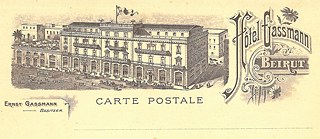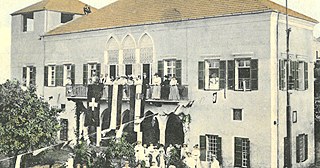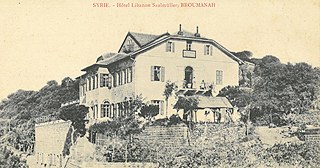Traces of Germany in Lebanon
“Everything Is So Clean It Gleams and Sparkles.” German-run Hotels and Restaurants in Lebanon

Blaich, Gaßmann, Unger. For anyone with an interest in German traces in Beirut, there’s no getting past these prominent family names, which were known well beyond the confines of the ‘German colony’ in the first half of the 20th century. These three families ran the two best hotels in the city, which were the first stops for many European travellers, one of the reasons being their convenient location. The public rooms of both houses also served as meeting points for the ‘German colony’ before the outbreak of World War I.
Hotel Allemand – also known as Deutscher Hof (or ‘German Inn’) – used to be located near the old port and was run by the Blaich and Unger families. Café Blaich with its garden was attached to it. In the summer of 1899, the German author Karl May stayed at the Allemand and reported:

The other hotel run by Germans was Hotel Gaßmann. The journalist and travel writer Paul Lindenberg, who just like Karl May was residing in Beirut around 1900, wrote,
Hotel Gaßmann, too, is only preserved on historical postcards – it was located not far from the Allemand by the so-called Souk el-Jamil. The German Society is said to have met in the rooms of the Hotel Gaßmann for a time. A postcard retrieved from the clubhouse of the German Society shows another, most likely also defunct building.
Incidentally, Kaiser Wilhelm never stopped off at either of these hotels during his visit; he preferred to stay on his ship, the MS Hohenzollern, which was moored in the port.
There were at least two German-run inns outside of Beirut:
in its 1907 Palestine and Syria edition, Meyer’s Travel Guide listed a Hotel Allemand in Baalbek run by a Mrs. M. Zapf. The hotel was mentioned some years later in the memoirs of doctor Wilhelm His, who inspected hospitals in Syria during World War I. His was so impressed by the size of the bed bugs at Hotel Zapf that he took a sample for the collection at his clinic. One can safely assume, therefore, that this hotel wasn’t quite as focused on cleanliness.
